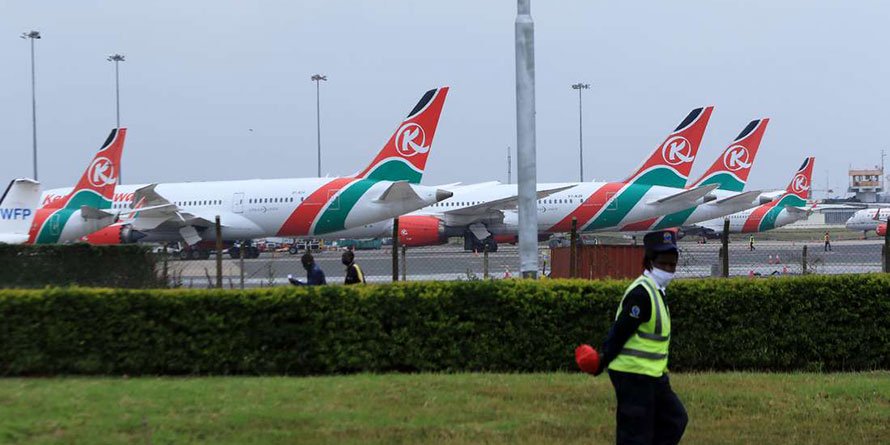KQ resumed international flights this month. FILE PHOTO | NMG Tanzania has gone silent on Kenya over resumption of Kenya Airways flights, more than 19 days after the government announced it has struck a deal with Dar es Salaam.
Kenya Civil Aviation Authority (KCAA) director general Gilbert Kibe said they are waiting for a word from Dar, but expressed optimism that the outcome will be positive.
“No response yet (from Tanzania),” said Mr Kibe in a text message Tuesday.
After the meeting by the two aviation regulators, Kenya was told to wait for response from Tanzania.
The Tanzania Civil Aviation Authority (TCAA) on July 30 cancelled plans to allow Kenya Airways to resume flights, citing the decision by Nairobi to exclude Tanzania from the list of countries whose nationals would be allowed entry under revised coronavirus restrictions.
The TCAA initially allowed KQ to resume scheduled services to Dar and Zanzibar.
Kenyan Transport Cabinet Secretary James Macharia announced early this month that the Tanzanian aviation regulator had lifted the ban and allowed the national carrier to resume flights on August 2 but this never came to pass despite the minister referring to standoff as a minor issue.
Kenya Airways resumed international flights on August 1, heading to about 30 destinations for the first time since the routes were suspended in March due to the virus.
Tanzania is one of the critical routes for KQ and the national carrier had planned two daily flights to Dar and three weekly flights to the resort city of Zanzibar.
KQ resumed domestic flights mid-July and targeted resumption of international flights in August as part of a recovery plan after losing Sh10 billion in the six months to June.
The national carrier got an approval from the TCAA on July 30 to resume Tanzania flights.KQ said for the rest of the year the airline expected demand to remain below 50 percent of capacity, but would increase flight frequencies depending on demand.In an interview with Reuters a fortnight ago, KQ chief executive Allan Kilavuka said 2020 was like a lost year.“In fact 2020, we call it a lost year. Because at some point we even see demand of 25 percent in some months, in some months we see 38 percent,” Mr Kilavuka told Reuters.
